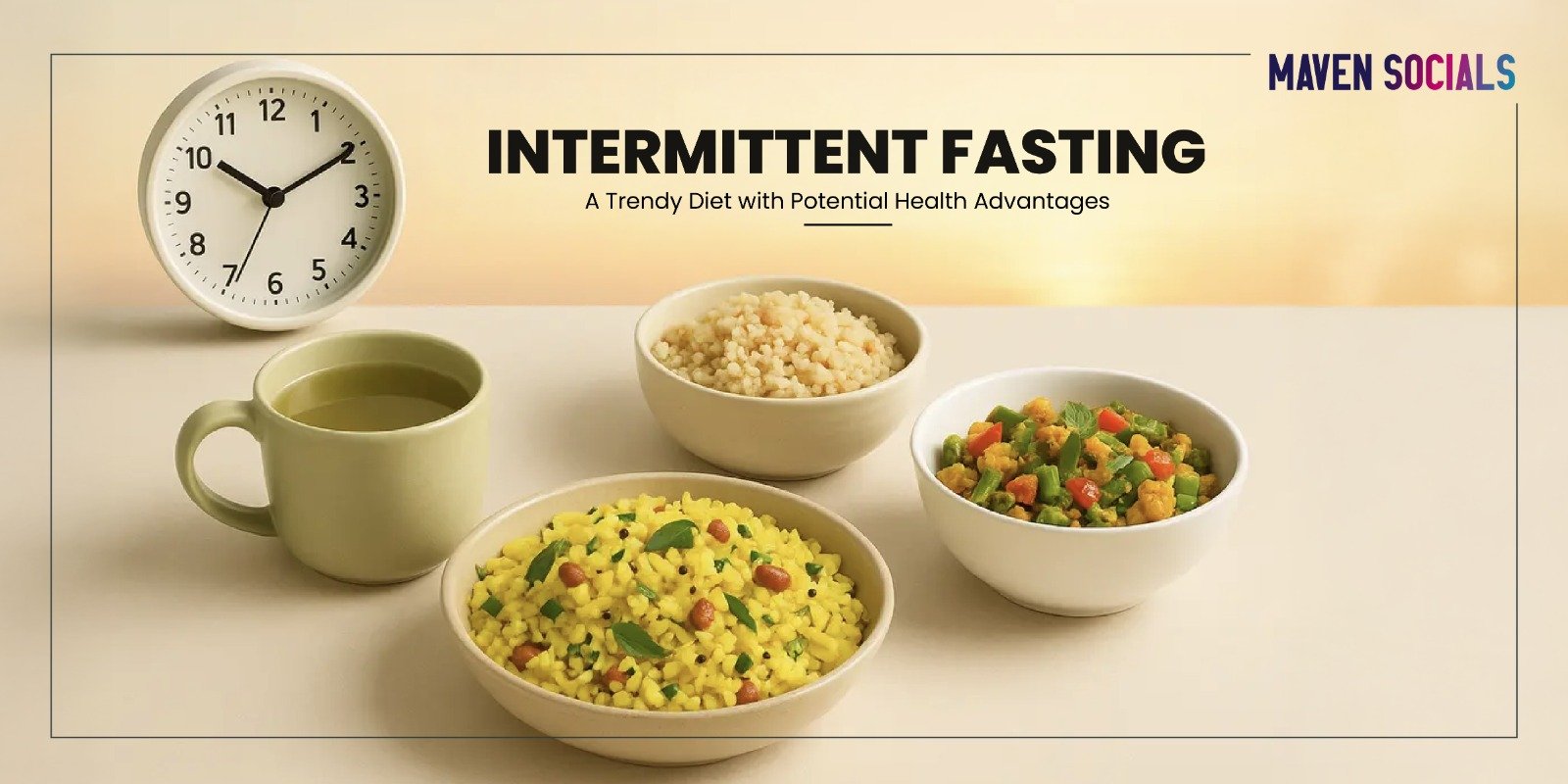Intermittent fasting has emerged as one of the most discussed dietary approaches in recent years, capturing the attention of health enthusiasts and researchers alike. This eating pattern, commonly referred to as the IF diet, involves cycling between periods of eating and fasting, fundamentally changing when you eat rather than what you eat. As more people seek sustainable approaches to healthy living India has witnessed a growing interest in this time-restricted eating method, with individuals exploring its potential for weight loss India and overall wellness improvement.
Understanding the Science Behind Intermittent Fasting
The concept of intermittent fasting isn’t entirely new, as humans have naturally practiced periods of food restriction throughout history. Modern research has revealed fascinating insights into how this eating pattern affects our metabolism and cellular processes. When practicing intermittent fasting, the body undergoes significant metabolic shifts, transitioning from using glucose as its primary fuel source to burning stored fat for energy. This metabolic flexibility is one of the key intermittent fasting benefits that researchers have identified, as it can potentially enhance insulin sensitivity and promote cellular repair processes that contribute to healthy living India.
Popular Intermittent Fasting Methods: Finding Your Approach
The 16:8 method stands as the most popular form of intermittent fasting, involving a 16-hour fasting window followed by an 8-hour eating period. This IF diet approach typically means skipping breakfast and consuming all meals between noon and 8 PM, making it relatively easy to integrate into busy lifestyles. Many practitioners find this method sustainable for long-term weight loss India goals, as it naturally reduces calorie intake without requiring complex meal planning or strict food restrictions.
Another widely practiced approach is the 5:2 method, which involves eating normally for five days of the week while restricting calories to approximately 500-600 on two non-consecutive days. This intermittent fasting variation appeals to those who prefer flexibility in their eating schedule while still experiencing the metabolic benefits associated with periodic calorie restriction. The 5:2 method has gained popularity in healthy living India communities because it allows for social eating occasions while maintaining the discipline required for effective weight management.
The eat-stop-eat method represents a more intensive form of intermittent fasting, involving 24-hour fasts once or twice per week. While this IF diet approach can deliver significant intermittent fasting benefits, it requires careful consideration and gradual adaptation. Alternate-day fasting presents another option, alternating between regular eating days and very low-calorie or complete fasting days, though this method may be challenging for beginners seeking sustainable weight loss India solutions.
Metabolic Benefits and Weight Management Potential
Research suggests that intermittent fasting can trigger several beneficial metabolic changes that support weight management and overall health. During fasting periods, insulin levels drop significantly, facilitating fat burning and potentially improving insulin sensitivity. This metabolic shift is particularly relevant for individuals pursuing weight loss India, as enhanced fat oxidation can contribute to sustainable body composition improvements while supporting healthy living India principles.
The IF diet has shown promise in promoting autophagy, a cellular cleaning process where cells remove damaged components and regenerate healthier structures. This cellular maintenance mechanism may contribute to improved longevity and reduced inflammation, making intermittent fasting benefits extend beyond simple weight management. Studies have indicated that this eating pattern can also influence hormone production, including growth hormone secretion, which plays a crucial role in metabolism and muscle preservation during weight loss.
Cardiovascular and Brain Health Considerations
Emerging research suggests that intermittent fasting may offer cardiovascular benefits, including improvements in blood pressure, cholesterol profiles, and inflammatory markers. These intermittent fasting benefits are particularly significant for individuals focused on healthy living India, as cardiovascular disease remains a major health concern. The IF diet’s potential to improve heart health markers makes it an attractive option for those seeking comprehensive wellness approaches beyond traditional weight loss India methods.
Brain health represents another area where intermittent fasting shows promise, with studies suggesting potential cognitive benefits and neuroprotective effects. The metabolic changes associated with fasting periods may enhance brain-derived neurotrophic factor (BDNF) production, supporting neuroplasticity and cognitive function. While more research is needed to fully understand these mechanisms, the preliminary findings suggest that intermittent fasting benefits may extend to mental clarity and neurological health.
Potential Risks and Important Considerations
Despite the growing popularity of intermittent fasting, it’s crucial to acknowledge potential risks and contraindications associated with this eating pattern. The IF diet may not be suitable for everyone, particularly individuals with certain pre-existing medical conditions, eating disorder histories, or specific nutritional needs. Those with diabetes, pregnant or breastfeeding women, and individuals with a history of eating disorders should exercise extreme caution and consult healthcare providers before attempting any form of intermittent fasting.
Some practitioners may experience side effects during the initial adaptation period, including:
- Fatigue
- Irritability
- Difficulty concentrating
- Disrupted sleep patterns
These symptoms often subside as the body adapts to the new eating schedule, but they highlight the importance of gradual implementation when pursuing weight loss India through intermittent fasting. Additionally, the restrictive nature of some IF diet approaches may lead to overeating during feeding windows, potentially negating the intended intermittent fasting benefits.
Cultural Adaptation and Practical Implementation in India
Implementing intermittent fasting within the context of Indian culture requires thoughtful consideration of traditional eating patterns, family dynamics, and cultural celebrations. Many families practicing healthy living India have successfully adapted intermittent fasting by aligning fasting windows with natural meal patterns and cultural practices. The flexibility of various IF diet methods allows for accommodation of festivals, family gatherings, and regional eating customs while maintaining the core principles of time-restricted eating.
Social support plays a crucial role in successful intermittent fasting implementation, particularly in communities where shared meals hold cultural significance. Educating family members about intermittent fasting benefits and involving them in the process can enhance adherence and create a supportive environment for sustainable weight loss India. Many practitioners find success by gradually adjusting their eating windows and communicating their health goals with loved ones who may initially express concern about the fasting periods.
Professional Guidance and Monitoring
Healthcare professional guidance becomes essential when considering intermittent fasting, especially for individuals with pre-existing health conditions or those taking medications. A qualified healthcare provider can assess individual suitability for the IF diet and provide personalized recommendations based on medical history, current health status, and specific goals. This professional oversight is particularly important for sustainable weight loss India approaches, ensuring that nutritional needs are met while pursuing health objectives.
Regular monitoring of key health markers is important, including:
- Blood glucose levels
- Blood pressure
- Nutritional status
This monitoring can help identify any adverse effects early and allow for appropriate adjustments. Healthcare providers can also offer guidance on maintaining adequate nutrition during eating windows and recognizing signs that may indicate the need to modify or discontinue the intermittent fasting practice.
Future Research and Evidence-Based Recommendations
While current research on intermittent fasting shows promising results, the field continues to evolve with ongoing studies examining long-term effects, optimal protocols, and individual variations in response. The growing body of evidence supporting intermittent fasting benefits has led to increased interest from the scientific community, with researchers investigating its applications for various health conditions and populations seeking healthy living India solutions.
As the research landscape expands, evidence-based recommendations for intermittent fasting implementation will continue to develop, providing clearer guidance for individuals considering this approach. The IF diet’s potential as a tool for weight loss India and overall health improvement makes it an important area of study, with future research likely to refine our understanding of optimal protocols and identify factors that predict individual success.
Conclusion: A Balanced Approach to Intermittent Fasting
Intermittent fasting represents a promising dietary approach with potential health benefits, but it requires careful consideration and individualized implementation. The various intermittent fasting benefits, from weight management to metabolic improvements, make it an attractive option for those pursuing healthy living India goals. However, the IF diet is not a universal solution, and its suitability varies significantly among individuals based on health status, lifestyle factors, and personal preferences.
Success with intermittent fasting depends on realistic expectations, gradual implementation, and ongoing monitoring of health markers. Those considering this eating pattern for weight loss India or general health improvement should prioritize professional guidance, maintain balanced nutrition during eating windows, and remain attentive to their body’s responses. With proper planning and support, intermittent fasting can serve as a valuable tool in the broader context of healthy living India, contributing to improved metabolic health and sustainable lifestyle changes.













